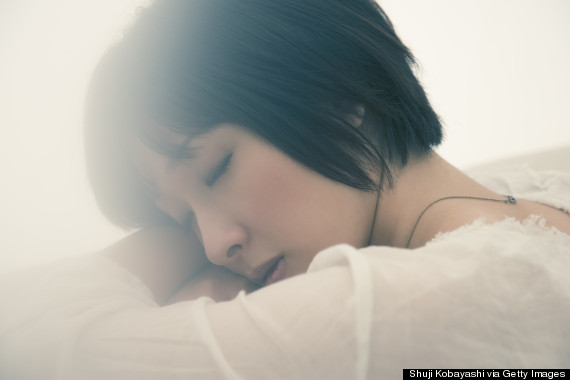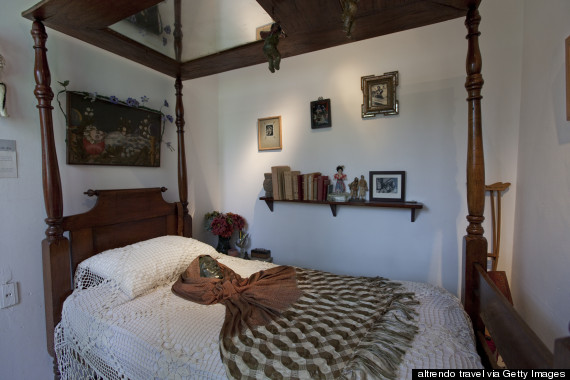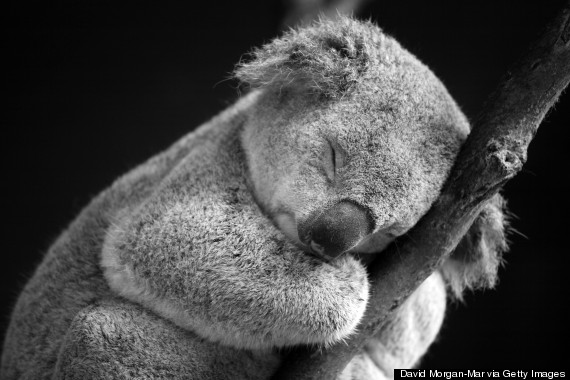
Both science and general public opinion are starting to wake up to the importance of sleep in maintaining health, well-being and productivity. We know that sleep deprivation not only contributes to serious health hazards, but also costs American corporations an estimated $63.2 billion a year in lost productivity.
And yet, nearly half of Americans are still getting fewer than the recommended seven or more hours of sleep per night, according to a recent Gallup report.
But some places in the world are prioritizing sleep on a large scale -- and they can serve as a role model for the rest of us.
Here are some of the world's best places for sleep.
Bad Kissingen, Germany

The town of Bad Kissingen, Germany is making a move for its residents to return to the natural sleep cycles that elude many of us living in a constantly-connected digital world. A recent Atlantic article, "The Town That's Building Life Around Sleep," put a spotlight on the small, Bavarian spa town's efforts to help its 20,000 inhabitants get back to their body's natural sleep cycles by taking measures to implement the principles of "chronobiology" into their lives.
The town's undertaking, currently still in its early stages, involves creating an online database with all the citizens' chronotype, that is, the internal clock that determines whether you're an early bird or a night owl, which is calculated by determining your midpoint of sleep. Based on the chronotype data, the town will be able to create measures to accommodate individuals' sleep needs, such as adjusting the start times of local schools, workplaces and businesses.
"In a hypothetical future world where Bad Kissingen succeeds in letting all of its citizens and visitors live out their chronotypes, the societal benefits would be huge. The town as a whole would be more creative, happier, and more alert," Julie Beck writes in The Atlantic. "Social interaction would improve, as would the population’s ability to problem-solve. Chronically tired people often struggle with obesity, immune suppression, and mental illness, so the town’s overall health -- both mental and physical -- would improve."
Tokyo, Japan

Japan has been ranked as one of the world's most sleep-deprived countries, but if you're a woman in need of a nap, Tokyo is a good place to be.
The Japanese do nap more than other countries (perhaps to make up for getting less shut-eye at night) according to a 2013 National Sleep Foundation poll, and Tokyo is opening up spaces where urban dwellers can go to squeeze in their daily nap. The stylish, serenity-inducing Nap Cafe Corne opened its doors last year to provide a calm space for women in Tokyo to nap on the go. They pay a small fee for each 10 minutes they stay.
The facility is described as being available for a variety of resting needs, for example, “when you’re sleepy and had to get up early in the morning, when your feet are tired from walking around all day, when you got caught in the rain and your clothes are all wet or when you have plans late at night and you want to rest up before going out.” They also offer a make-up station, healthy snacks, changing rooms and a choice of pillows, Pop Up City reports.
Ikaria, Greece

The New York Times described the Greek Island of Ikaria as the "island where people forget to die." The statement is hardly an exaggeration: The small Mediterranean island has one of the healthiest, longest-living populations in the world -- Ikarian men are nearly four times as likely as American men to reach the age of 90, and often in better health -- and it may be in part because of their good sleep habits.
"It’s easy to get enough rest if no one else wakes up early and the village goes dead during afternoon naptime," the Times wrote.
Beyond Ikaria, the daily siesta is a time-worn custom throughout Greece that keeps the country's population happy and healthy.
"Napping is a response, an adaptation to the hot climate," Dimitrios Trichopoulos, a researcher at the Harvard School of Public Health, told NPR. "Siesta is a very pleasant habit. In a way, it doubles your day. Because you start all over again at 5 o'clock and you can go on until 11 or 12 o'clock which is not uncommon at all in our part of the world."
Mexico

According to the National Sleep Foundation's International Bedroom Poll, which studied the sleep habits of six different countries, Mexicans get more sleep than residents of United States, United Kingdom, Canada, Germany and Japan, clocking in an average of seven hours and three minutes of sleep per night during the workweek.
Mexicans also have generally better sleep hygiene than the other countries surveyed. They're are more likely to pray or meditate (rather than use electronics) before bed, and they're way ahead of other countries when it comes to bedroom tidiness, with 82 percent of respondents reporting that they make the bed every day and one in four saying they wash their sheets weekly. And Mexicans bring music into the bedroom more than people in other countries, with 61 percent saying that music creates a relaxing bedroom environment -- higher than any other place.
Harvard Medical School, Cambridge, Massachusetts

For decades now, Harvard University has been at the forefront of sleep research. Their work -- led by some of the best scientists in the field -- has dramatically increased our understanding of the science of sleep, and has led to the creation of new technologies and treatments that have improved the lives of thousands.
"It’s pretty clear that the world, in general, is sleep deprived. Sleep is one of those things that touches everyone," Russell Sanna, executive director of the Division of Sleep Medicine at Harvard Medical School, told the Harvard Business Review. "What we’re about is trying to get to sleep recognized as the third pillar of health, along with diet and exercise, and to get it ingrained into everybody’s daily life as a priority."
In addition to conducting research, the Division of Sleep Medicine provides resources for the public to help boost knowledge around sleep-related issues and solutions. Sanna explained that in the short term, Harvard wants sleep health to become part of the public health discussion, and in the long term, they're looking to see major changes in sleep trends globally.
Lone Pine Koala Sanctuary, Brisbane, Australia

Koalas need more sleep than almost any other animal, spending upwards of 18 to 22 hours a day dozing off. At Lone Pine sanctuary in Brisbane, the first and largest koala sanctuary in the world, you can come observe the marsupials getting their nap on for most of the day -- and cuddle with one of the 130 koala bears that live there.
